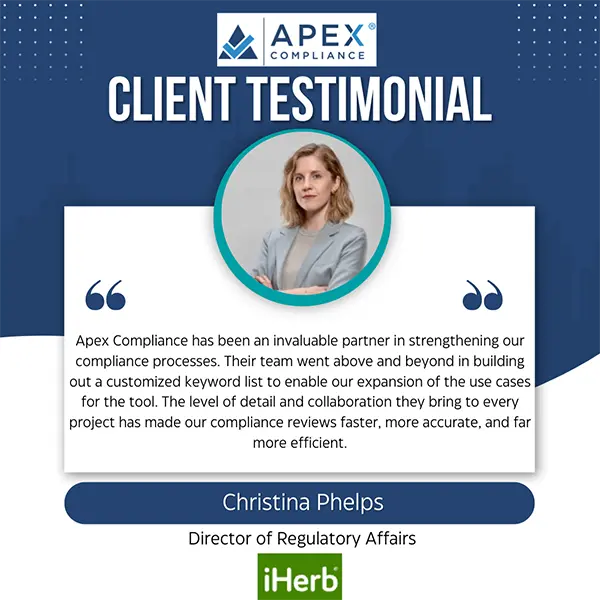
“Blood sugar” enforcement risks and review
Use caution when promoting blood sugar products. Remove claims on social media.
Blood sugar claims enforcement remains top of mind for the FDA. Since January 2021, there have been 36 blood sugar related warning letters.
Blood sugar support is not a high-risk claim, but it becomes very high-risk when correlated with a disease such as diabetes. Not surprisingly, nearly 78% of the warning letters include the words diabetes or diabetic. The remaining eight that only mentioned “blood sugar” also contain high-risk words such as cancer and depression. These claims were made on Amazon, social media, testimonials, videos, and product tags. I expect to see more warning letters calling out claims on these platforms, especially with claims made in videos and testimonials.
Testimonials: Claims made in testimonials were cited nearly 30% of the time, which is a strong enforcement trend to be aware of. Here is a video about why product reviews and testimonials can be considered marketing claims.
Blogs: 22% of the warning letters include claims made in blogs. The line between “educational” and “product blogs” is thin. I talk about this here.
Here is a learning tool titled “Protect Your Company: Learn to read warning letters.”
Social Media: Claims made on social media represent nearly 64% of these letters. The FDA is paying close attention to social media posts. I expect the number of social media related warning letters to increase, especially since the FDA is going back several years on company social media posts. They look at several year old posts in the same manner as current ones. Here is a video about reasons to clean up old social media posts.
Hashtags: 25% of these letters include claims made in hashtags. This is a strong enforcement trend to watch. Here is a video about this.
Key Takeaways:
- Blood sugar marketing statements should be used with caution.
- The word diabetes should be avoided.
- Remove claims and high-risk words on all marketing platforms.
- Blogs, hashtags, and social media are under increased scrutiny.
What enforcement trends are interesting to you?

